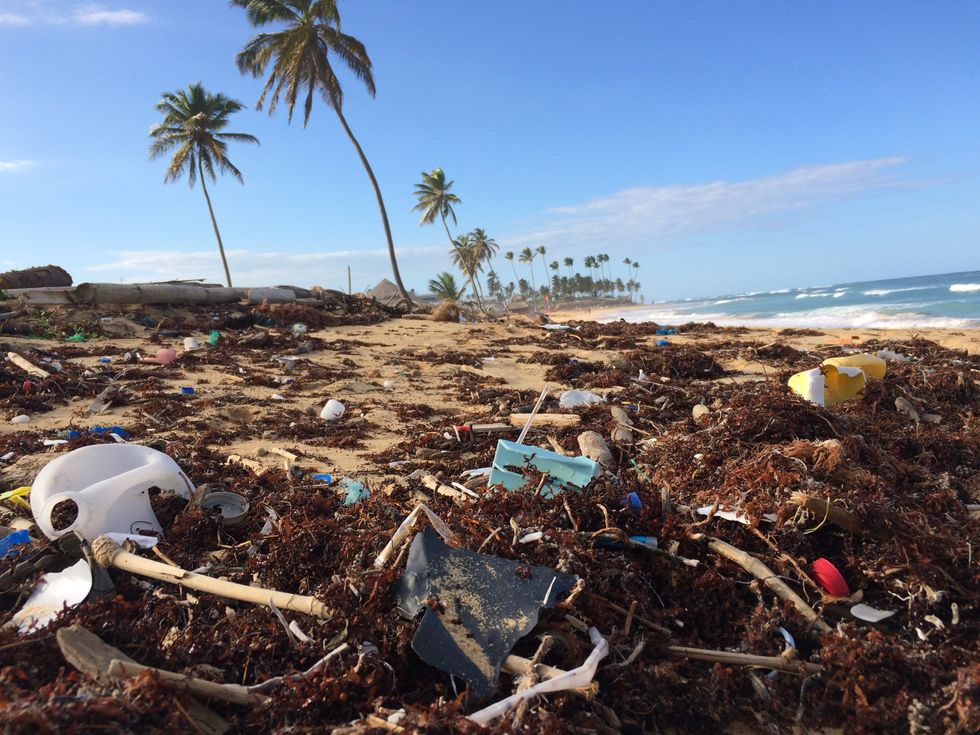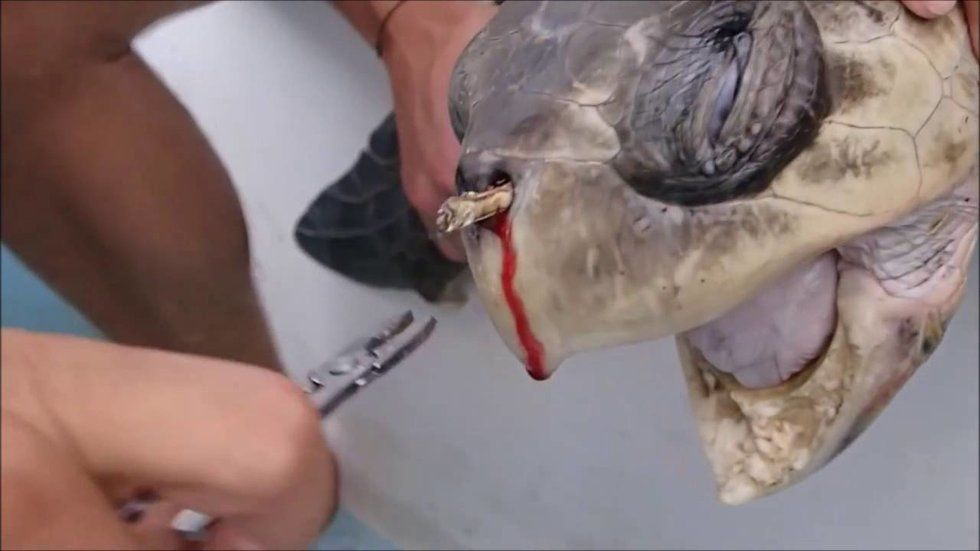Did you know? Plastic straws are really bad for the ocean. We use over 500 million every day in America, and most of those end up in our oceans, polluting the water and killing marine life. We want to encourage people to stop using plastic straws for good. If we don't act now, by the year 2050 there will be more plastic in the ocean than fish.
People have come to expect plastic straws in every drink, in an example of extreme waste being generated for minimal convenience. We use straws for around twenty minutes before we toss them away, which is an astonishingly quick lifespan for an item that will be on the planet forever. These short-lived tools are usually dropped into a garbage can with no further thought, instantly becoming a source of plastic pollution.
Why are plastic straws so bad for the environment?
Of the eight million tons of plastic trash that flow every year into the world's oceans, the plastic drinking straw is a top contributor to all that tonnage.
It can be hard to see how using one measly plastic straw is going to cause huge amounts of damage to the environment, but let me put into context for you. Recently a team of scientists in Costa Rica came across an endangered species of sea turtle with what they thought was a parasitic worm blocking its airway. They realized it was actually a plastic straw. Hours from veterinary help, the scientists successfully dislodged the straw themselves and released the turtle back into the ocean.
An estimated 71% of seabirds and 30% of turtles have been found with plastics in their stomachs. When they ingest plastic, marine life has a 50% mortality rate. What would our oceans be without marine life?
What's equally as bad, perhaps even worse is that when plastic does make it into the ocean it breaks down into smaller and smaller known as "microplastics"rather than biodegrading or dissolving, which poses great threats to marine life including fish.
You make think that you can recycle plastic straws, but that is not true.
Most plastic straws are too lightweight to make it through the mechanical recycling sorter. They drop through sorting screens and mix with other materials and are too small to separate, contaminating recycling loads or getting disposed of as garbage.
Plastic straws are made from polypropylene, which is a byproduct of petroleum, a fossil fuel that requires an incredible amount of energy and natural resources to extract and refine. Polypropylene is identifiable by the resin identification code 5 and is commonly recyclable, just often not in drinking straw format. Size is the biggest barrier to straw recycling. As plastic travels down conveyor belts while being sorted, small items like bottle caps and straws fall through the cracks and end up being sent to the landfill.
As of right now, there aren't many (if any) special straw-recycling facilities either, which means when you use a straw, you know that plastic will sit in a landfill for years to come. Most straws are used in a restaurant setting, and it's unlikely you are taking the straw home with you. That means you're relying on either the restaurant to provide a recycling solution for its straws, or your office janitorial staff if you're bringing a soda back to work.
Small and lightweight, straws often never make it into recycling bins; the evidence of this failure is clearly visible on any beach. And although straws amount to a tiny fraction of ocean plastic, their size makes them one of the most insidious polluters because they entangle marine animals and are consumed by fish.
Yes, some people need a straw! Anyone who has had a stroke has autism, MS or other life-changing physical issue needs a straw and there are different alternatives instead of a plastic straw, such as a metal straw.
What can you do?
Educating your friends and family about how silly straws truly are will help motivate them to make the switch to straw-free. I'll admit it; I've used the line "that straw could end up in a turtles nose!" more times than I can count.
It's simple. It's easy. Refuse the straw.
For more information visit these websites:
http://www.plasticpollutioncoalition.org/no-straw-...




 Photo by
Photo by  Photo by
Photo by  Photo by
Photo by 



















